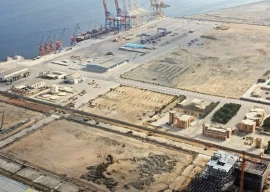
In Pakistan, one out of 20 men and one out of 12 working women look at managing their personal finances to enhance their ability to earn more. We can say that we are on the defensive or that the economic uncertainty drives it, or maybe work pressure. But the fact is that with age, you tend to be generally more careful and better at planning, due to life’s endless experience at work and managing your business.
It is not job insecurity, or country politics or even the desire to do impulse buying. It is predominantly the need to get better at what you do and money becomes a strong motivator to either get better at saving or get more efficient at spending.

Few considerations come with age, as we understand how the world works better. Whether you are averaging a hundred thousand dollars a year or less than fifty, you keep working on it, multiplying income and savings. In a developing country, most of what you save is spent on the “acquired lifestyle”, which is costly.
Let us take example of an average educated family in Pakistan. We are on average four to five people per house or apartment, where almost two-thirds do not work and depend on the rest who actually earn a living. On an average, cost of education for a child today is Rs15,000 a month.
Then you bear water and maintenance cost of living, including water charges per apartment/house that range between Rs8,000 and Rs25,000 per month, along with cost of water coming through tankers that add about Rs5,000 more.
Average cost of taking your family out for a dinner these days is between Rs3,000 and Rs5,000 for an average family of four.
On the whole, the family has to spend around Rs100,000 a month excluding fuel.
How to cope with this cost while ensuring you save your income. Simple ways are there to be followed strictly and it can be a lot easier for the average people.
First, make yourself home productive by giving a portion of your home on rent which can easily fetch Rs25,000 every three months on an average apartment and can fetch Rs60,000 to Rs100,000 per house, depending on the size and condition of your house.
Another way to enhance your savings is to “use your debts” – restructure them wisely. Check interest payments on credit card, car insurance paid every year or the house mortgage . Reduce that cost and readjust the rates through your bank and settle for a cheaper mortgage or insurance policy.
Then you need to look at daily spending habits that consume your savings, and aim to cut unnecessary spending.
Finally, you need to “mothball your other commitments”. Most of us ignore little things that add to the cost of living comfortably.
The writer speaks on IR & Public Policy, is a banker and media broadcaster
Published in The Express Tribune, August 12th, 2013.
Like Business on Facebook, follow @TribuneBiz on Twitter to stay informed and join in the conversation.
COMMENTS (3)
Comments are moderated and generally will be posted if they are on-topic and not abusive.
For more information, please see our Comments FAQ





1719053250-0/BeFunky-collage-(5)1719053250-0-270x192.webp)












Which bank in Pakistan would negotiate interest rates and loan repayments on simple consumer instruments of credit ? There is no authentic and sound Pakistan specific financial advice available .This just doesn't add up.Tribune's quality checks are rather off !
Considering cost of water supplied by tankers or other sources, is very far from even a wide definition of common expenses, a general Pakistani family spends money on.
Which "average family in Pakistan" has access to credit cards and a monthly budget of Rs. 100,000 excluding fuel? How many Pakistanis have mortgages to begin with?